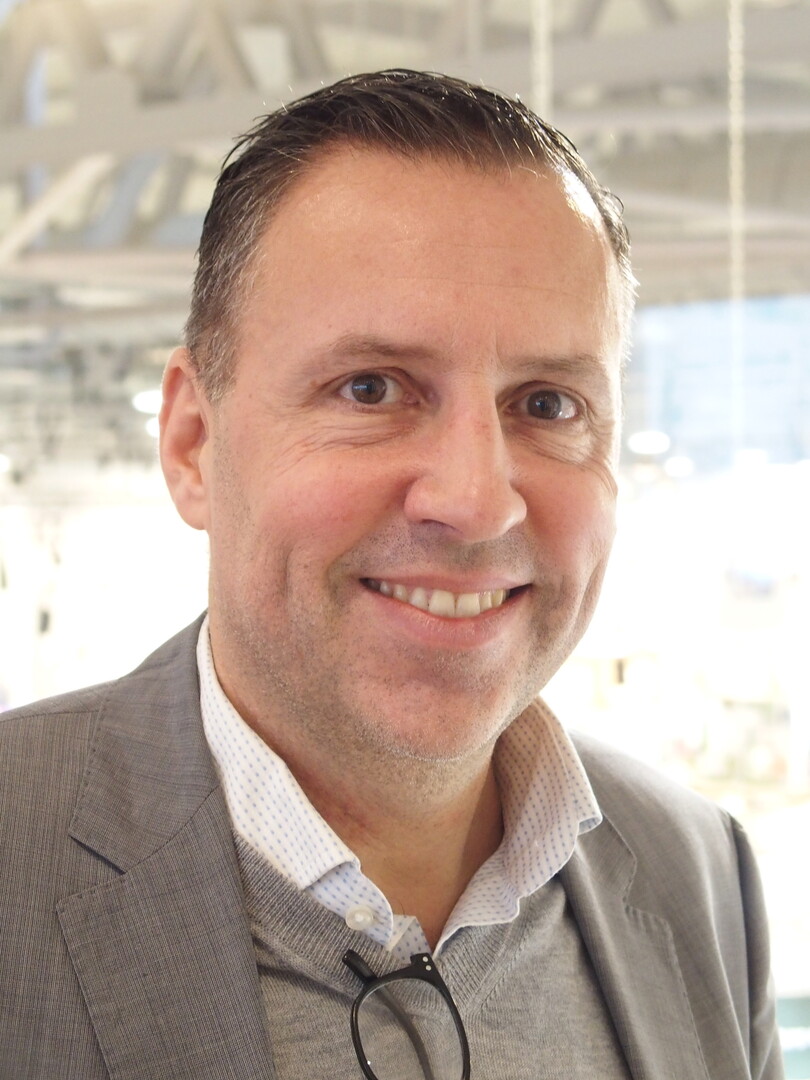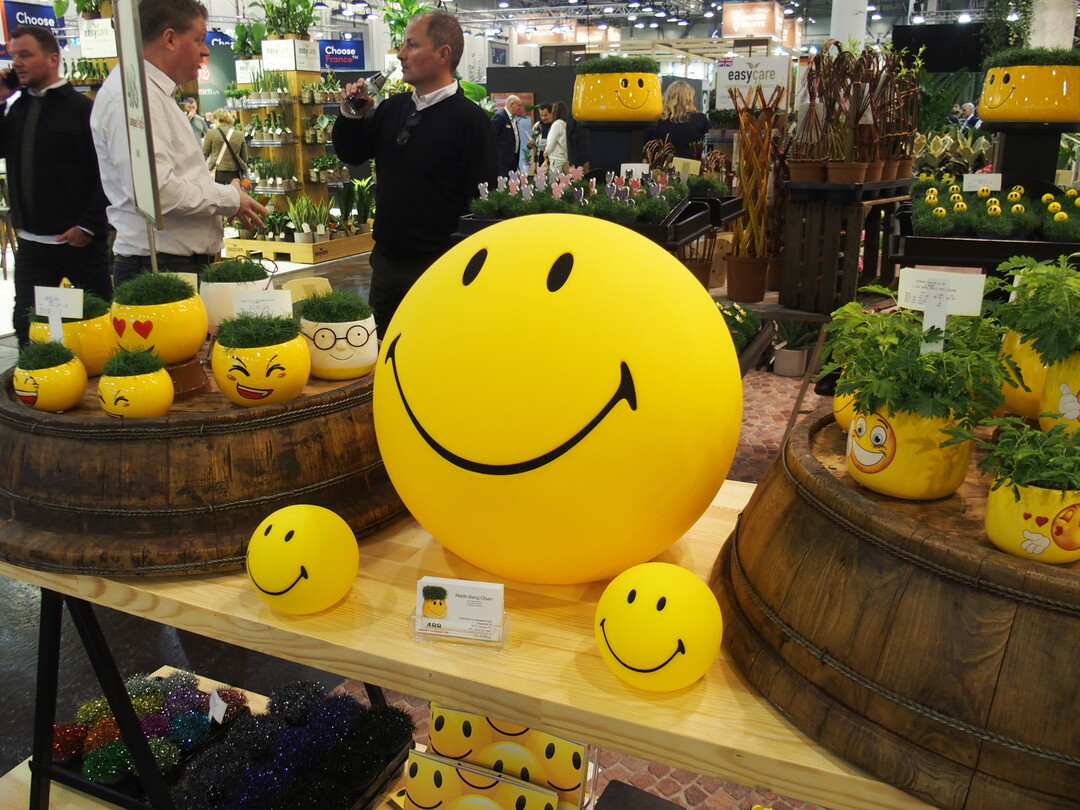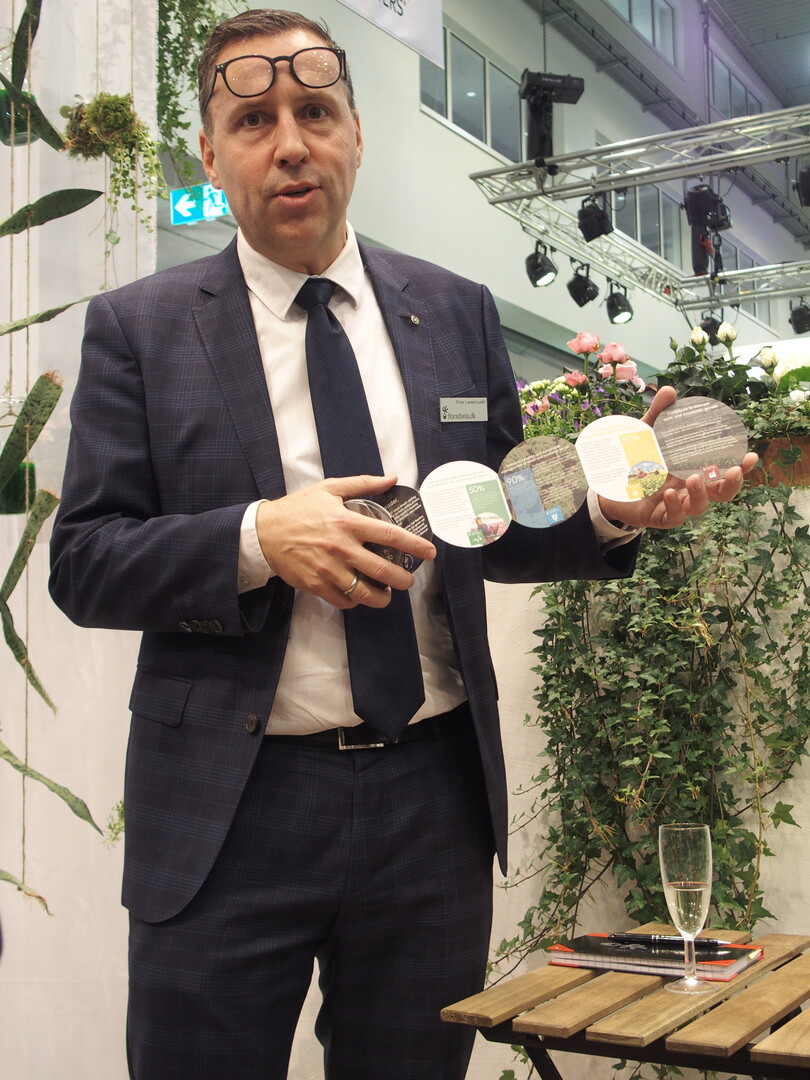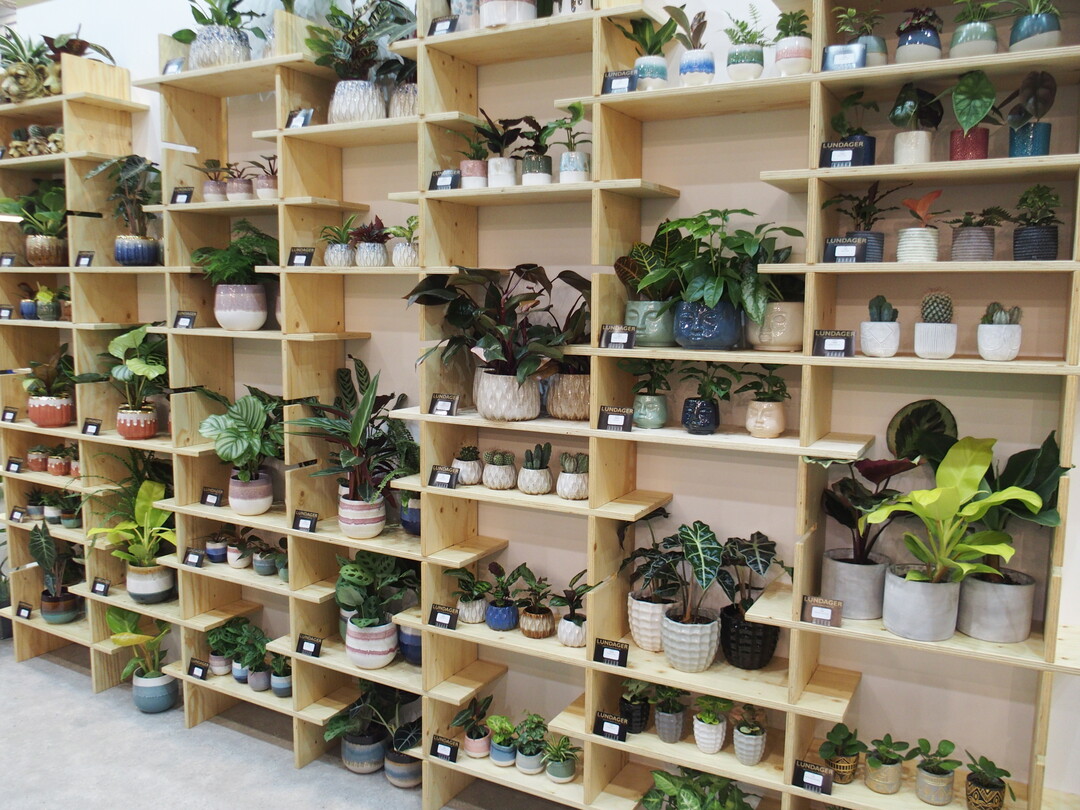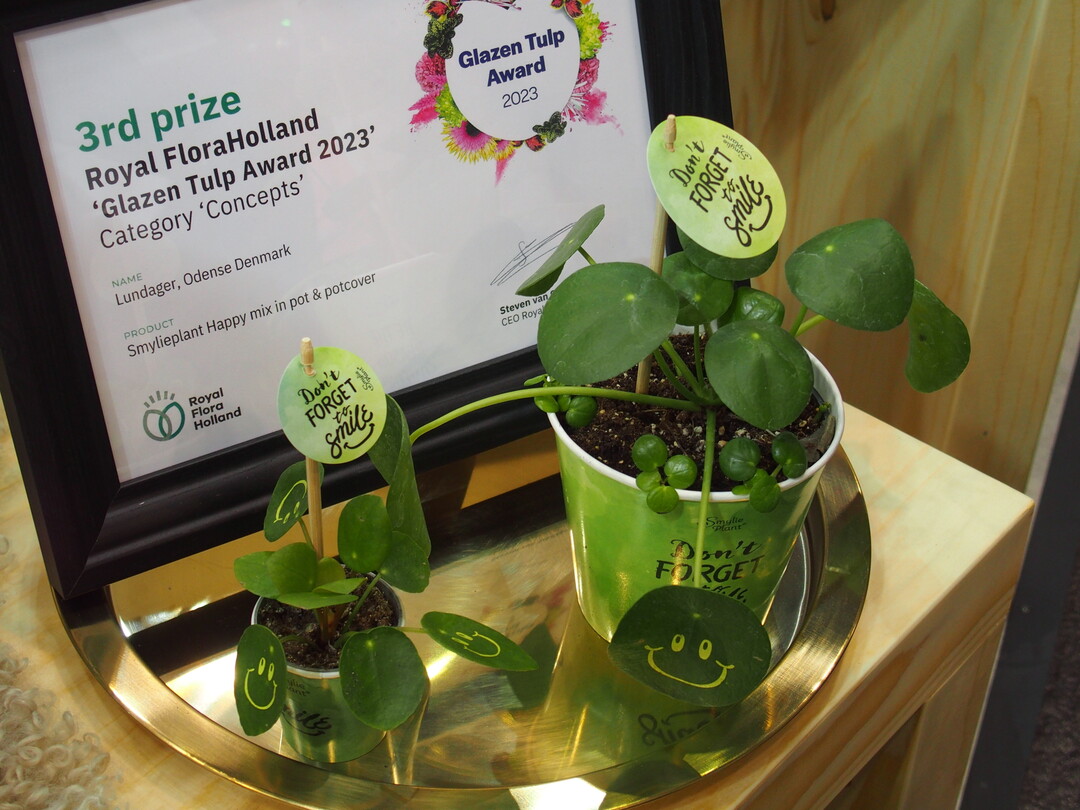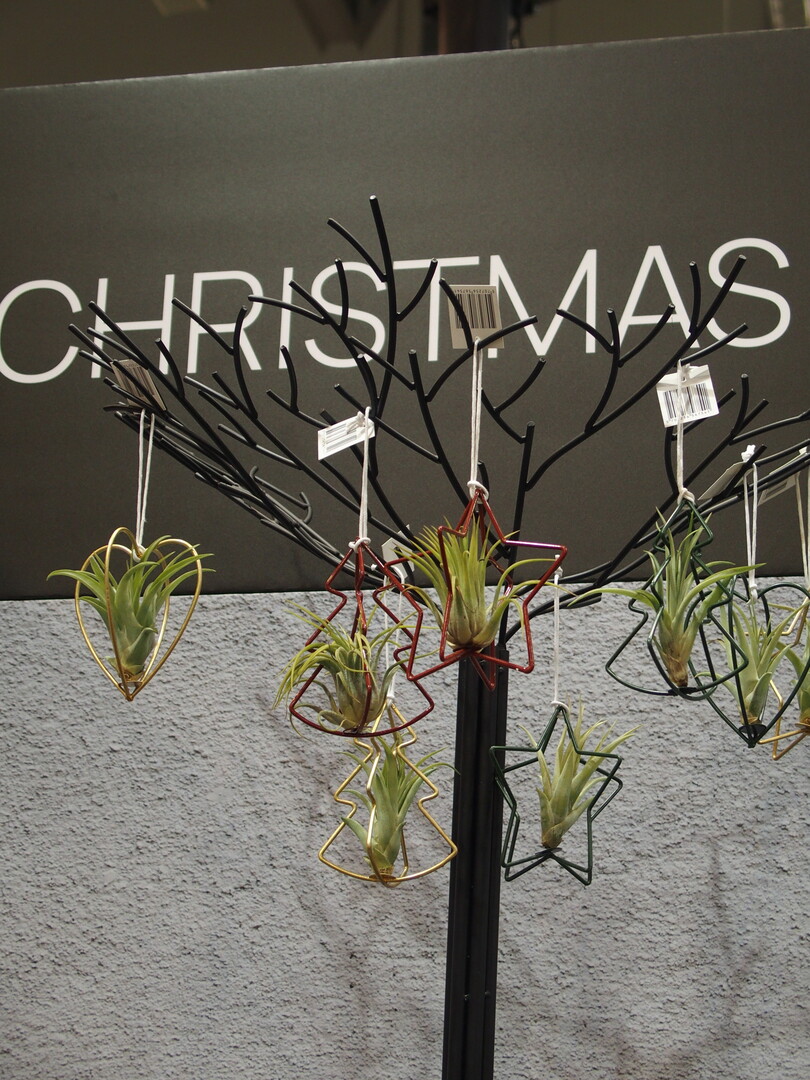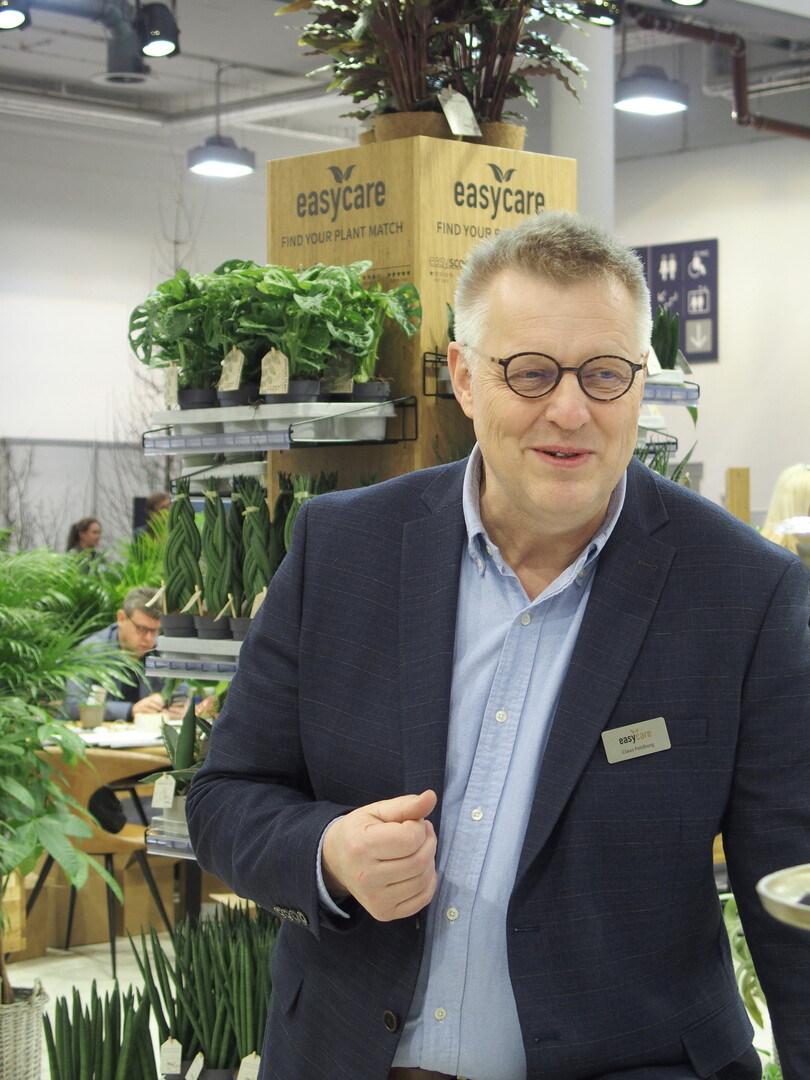Sustainable and waiting
Danish gardeners have long focused on trendy and easy-care plants, often in modern decorative pots, that is, ready-made directly for convenient placement in the living room.
- Published on
A good 30 Danish gardeners presented their pot plants at the Floradania joint stand, the marketing company of Danish horticulture with the aim of promoting Danish pot plants. This year, the gardeners received €100,000 from the Danish Ministry of Foreign Affairs for trade fair participation. Whether this grant will still be available next year is uncertain. "It is not only sales that play an important role at a trade fair, but also networking, which should not be underestimated," emphasized Peter Larsen-Ledet, managing director of Floradania.
Consumer sentiment in Denmark is wait-and-see, and demand for plants has tended to drop, Larsen-Ledet reported. He explained the sustainable production of Danish pot plants as a marketing tool. The sustainability concept is extremely important for Danish horticulture, he said, but at the same time causes challenges, also from the government side. Because there are fewer horticultural businesses overall, fees have increased for state farm inspectors, who now have to finance themselves through fewer growers. "There is a lack of dialogue here," Larsen-Ledet commented. In 2001, there were about 300 member companies in Floradania, but the number has shrunk to just 86 potted plant companies plus 34 nurseries today. About 70% of the potted plants produced in Denmark are exported.Sales have shifted in the direction of discount stores since the crisis. Danish growers are struggling with more and more bureaucracy, EU laws and stricter rules regarding plant protection. Many are therefore shying away from larger investments. Large farms, such as Lundager, on the other hand, continue to invest in their production areas. Due to decreased demand and the death of the company's founder, the PKM company with the well-known brand "Fairytale Flowers" has closed down and leased out a larger part of its area. By growers, one of Denmark's leading and largest producers of, for example, Kalanchoe, Calandiva and Osteospermum, on the other hand, has expanded again by buying additional farms.According to Larsen-Ledet, fewer and fewer production steps are being transferred abroad, for example to Poland. Important for the sales of Danish growers are the four order fairs per year in Odense.
Laughing plants and low-maintenance concepts
Lundager offers five new Peperomia that create naturalness in the living space with their appealing foliage and beautifully compact growth. The third prize of the "Glazen Tulp Award 2023" in the category concepts was awarded to Lundager for the laughing "Smylieplant Happy mix in pot & potcover". A special machine is used to print the foliage leaves, in this case with a smiley face. There are matching printed cardboard planters. Lundager is a participant in the "Live Trends" concept, a global design group founded in 2013. The concepts focus on dreamy naturalness with plants for the home. Special, low-maintenance plants are combined with largely Chinese-sourced hard goods such as planters. "Easy care" is the name of the concept presented by Claus Feldborg with low-maintenance plants. One to five stars document the care required for the respective plants. Many plants come from production in the company's own Thai operation.
HortiAdvice presented its new management tool for horticultural businesses, including young plant businesses. The climate program InfoGrow 2.0 helps to save energy by optimally regulating the climate at the respective cultivation times. Due to the increased energy prices, also in Denmark, this option is increasingly used. Many horticultural businesses in the Odense region heat with comparatively inexpensive district heating, but more and more are combining this with heat pumps. These even cool the houses in summer, with the added effect of keeping CO2 in the house better by reducing ventilation. Few horticultural companies that heat with gas have now ceased production. Increasingly, Dutch farms are looking to Danish growers for new crops. "We are hoping for rising prices for our potted plants, as European production as a whole has fallen," Larsen-Ledet concludes.



